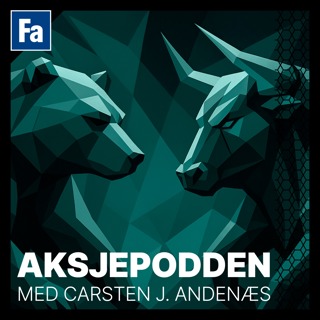
E45: Expat Life: 15 Years in Panama
Doug Mannell, a 78-year-old Canadian expat, reflects on 15 years of retirement in Panama—sharing candid insights on cost of living, healthcare, longevity, and navigating life abroad.🌎 Guest BioDoug Mannell is a Canadian retiree who relocated to San Carlos, Panama in 2008 in search of warmer weather and a more affordable lifestyle. With a background in technology and a thoughtful, practical approach to aging, Doug has spent the last 15 years building a fulfilling life abroad. He brings deep personal experience on expat living, financial planning, healthy aging, and adapting to cultural shifts.📌 Topics DiscussedWhy Panama won over Costa Rica, Mexico, and EcuadorReal cost of living comparisons between Canada, Panama, and the U.S.Navigating healthcare as an expat in PanamaSocial connections, aging, and longevity in retirement abroadRisks, rewards, and realities of expat lifeLanguage barriers and adapting to a new cultureReflections on AI, societal turbulence, and the digital future💬 Best Quotes“The best place to retire isn’t universal—it’s deeply personal. Spend time in a place before you commit.”“You can’t run away from yourself. If you're unhappy, changing countries won’t fix that.”“We’re heading toward a future where we talk to computers instead of type. That’s the real revolution.”📺Watch the full podcast on YouTube➡️https://youtu.be/SBrOWiLyo0M?si=H-zqtDoK_lpQCWlN 🎙 The Pod is hosted by Jesse Wright💬 For guest suggestions, questions, or media inquiries, reach out at https://elpodcast.media/📬 Never miss an episode – subscribe and follow wherever you get your podcasts.⭐️ If you enjoyed this episode, please rate and review the show. It helps others find us. Thanks for listening!
24 Sep 202344min

E44: Dark Days Ahead: The Threats to Our Electric Grid
Meredith Angwin warns of a looming crisis in U.S. energy reliability, explaining how market design, renewables, and misguided policy could lead to widespread blackouts.👤 Guest BioMeredith Angwin is a physical chemist and energy consultant who spent decades working on utility projects related to nuclear, geothermal, and fossil fuel power plants. Now retired from industry, she is the author of Shorting the Grid: The Hidden Fragility of Our Electric Grid, where she critiques the design and operation of modern deregulated energy markets and advocates for prioritizing reliability in grid planning.📌 Topics DiscussedThe structure and function of the electric grid (balancing authorities, RTOs, transmission)Why intermittent renewables destabilize the gridThe Texas 2021 blackout and what it revealsHow electricity auctions work and why “cheap” wind and solar are misleadingThe danger of prioritizing low-carbon goals over reliabilityCalifornia’s energy policies and future EV mandatesPolicy grid vs. physical grid: why bureaucracy worsens fragilityHow subsidies distort energy markets and investor incentivesLocal control, advocacy, and preserving reliable power for future generations💬 Top 3 Quotes“Without reliability, none of those other things—zero carbon, renewables—are going to count.”“The value to society and the value to the investor have become decoupled in the energy field.”“We need advocates on the side of providing reliable energy—not just activists chasing slogans like 'renewable' or 'low carbon.’” 🎙 The Pod is hosted by Jesse Wright💬 For guest suggestions, questions, or media inquiries, reach out at https://elpodcast.media/📬 Never miss an episode – subscribe and follow wherever you get your podcasts.⭐️ If you enjoyed this episode, please rate and review the show. It helps others find us. Thanks for listening!
16 Sep 20231h

E43: Bitcoin vs Big Pharma: Rethinking Health, Money & Food
Engineer & author Tristan Scott joins El Podcast to explore the intersection of Bitcoin, beef, decentralization, and personal health after overcoming post-concussive syndrome.Guest Bio:Tristan Scott is an electrical engineer turned health advocate and author of Bitcoin and Beef: Criticisms, Similarities, and Why Decentralization Matters. After suffering from post-concussive syndrome, he embarked on a deep personal journey into holistic healing, regenerative agriculture, and decentralized finance. He is also the co-host of Decentralized Radio.Topics Covered:Personal recovery from post-concussive syndrome and failures of conventional medicineThe healing power of beef, ketogenic diets, and regenerative agricultureCritiques of industrial food systems, big pharma, and centralized institutionsThe philosophical and structural parallels between Bitcoin and regenerative food systemsThe flaws in life expectancy as a measure of public healthHow broken incentives in fiat economies impact food, health, and financeThe rise of censorship, corporate capture, and why decentralization mattersThoughts on work ethic, societal collapse, and the post-pandemic wake-up callTop 3 Quotes:“You should not take anyone's word in stone for anything—the whole reason we got into this mess is the sheepishness of our society.”“Beef isn’t the problem—it’s the system behind it. I’m not fighting vegans, I’m fighting industrial agriculture.”“Nature doesn’t work on a quarterly profit model—real quality takes time, whether it’s regenerating soil or building a decentralized financial system.” 🎙 The Pod is hosted by Jesse Wright💬 For guest suggestions, questions, or media inquiries, reach out at https://elpodcast.media/📬 Never miss an episode – subscribe and follow wherever you get your podcasts.⭐️ If you enjoyed this episode, please rate and review the show. It helps others find us. Thanks for listening!
7 Sep 20231h 21min

E42: Procreate or Perish: Why Population Collapse Is the Real Crisis - w/ Dr. Paul Morland
Demographer Dr. Paul Morland joins El Podcast to explore why population collapse—not overpopulation—is the defining crisis of the 21st century.Guest Bio: Dr. Paul Morland is one of the UK’s leading demographers and the author of several books including Tomorrow’s People: The Future of Humanity in Ten Numbers. A senior associate at the think tank Civitas, Morland is known for his deep analysis of demographic trends, their impact on economics, geopolitics, and culture, and his bold advocacy for pro-natalist policy solutions.Topics Discussed:Why overpopulation fears are outdated and misguidedDemographic collapse in East Asia, Southern Europe, and beyondThe economic and social consequences of aging societiesCultural, religious, and ideological roots of fertility declineWhy immigration isn’t a sustainable solutionWhat the U.S., UK, China, and Africa face demographicallyMorland’s forthcoming book Procreate or PerishThree Best Quotes:“If societies like the Italians are not interested in reproducing themselves, there will be no Italy as we’ve understood it—and no Italians—in 300 years.”“Ultimately, if you want fewer people without coercion, the price is demographic collapse—economically, socially, and spiritually.”“You can’t build a future society on childlessness. That’s not a philosophy—it’s an ending.” 🎙 The Pod is hosted by Jesse Wright💬 For guest suggestions, questions, or media inquiries, reach out at https://elpodcast.media/📬 Never miss an episode – subscribe and follow wherever you get your podcasts.⭐️ If you enjoyed this episode, please rate and review the show. It helps others find us. Thanks for listening!
2 Sep 20231h 7min

E41: Obama’s Real Legacy? His Biographer Tells a Different Story
Pulitzer Prize-winning historian David Garrow discusses the making of Barack Obama, his complex transformation, and the enduring impact of his presidency.Guest bio: David Garrow is a Pulitzer Prize-winning historian and biographer best known for Bearing the Cross, his biography of Martin Luther King Jr., and Rising Star: The Making of Barack Obama, a deeply researched, 1,000-page account of Obama’s early life and political ascent.Discussed topics:The writing and research process behind Rising StarObama’s transformation from community organizer to calculated political figureHis early relationships, ambitions, and identity strugglesPost-presidency lifestyle and criticism from former supportersComparisons between Obama and other presidents, including Carter and BidenThe challenges of being a public figure in modern politicsThree best quotes:"I think who they are now bears almost no resemblance to who they were in 2003.""The fundamental lesson of Rising Star is that when someone decides they want to be a politician, that’s a very different choice than being Martin Luther King.""Carter’s post-presidency was a more notable human achievement than what he did as president—and Barack could’ve done the same." 🎙 The Pod is hosted by Jesse Wright💬 For guest suggestions, questions, or media inquiries, reach out at https://elpodcast.media/📬 Never miss an episode – subscribe and follow wherever you get your podcasts.⭐️ If you enjoyed this episode, please rate and review the show. It helps others find us. Thanks for listening!
26 Aug 202341min

E40: What No One Tells You About Expat Life
Award-winning travel writer Tim Leffel and expat Mary Ellen Lee share the unfiltered realities, benefits, and challenges of living abroad in Mexico and Panama — from cost of living to healthcare, safety, visas, and reinvention in retirement.Guest Bios:Tim Leffel is a globetrotting, award-winning travel writer and author of A Better Life for Half the Price. With articles in USA Today, Lonely Planet, and Budget Travel, he currently resides in Guanajuato, Mexico, and specializes in helping others explore affordable international living.Mary Ellen Lee is a retired expat who left North Carolina to live full-time in Coronado, Panama. She shares her firsthand experience navigating the logistics and lifestyle of expat life, while also pursuing her passions like painting and community building.Topics Discussed:Why they chose Mexico and Panama over other countriesCost of living comparisons with the U.S.Expat visa options and bureaucratic hurdlesLocal healthcare quality and affordabilityLanguage barriers and cultural adjustmentSafety, crime perception, and personal securityThe emotional and social dynamics of expat lifeTips for making the move and finding purpose abroad3 Best Quotes:"We were paying more just on rent in Tampa than we now pay for everything in Mexico."– Tim Leffel on the staggering cost differences that make expat life appealing."You don’t retire to die—you retire to live. And living here lets you truly start over."– Mary Ellen Lee on how moving abroad sparked her personal renaissance."Once you get a taste of life outside the U.S. for half the price—healthier, more fun, and more interesting—it's hard to go back."– Tim Leffel on why expat life often becomes permanent.📺Watch Full Podcast on YouTube➡️https://youtu.be/OsVDCuRgYuo?si=Nqoyp90FleU-MWk5 🎙 The Pod is hosted by Jesse Wright💬 For guest suggestions, questions, or media inquiries, reach out at https://elpodcast.media/📬 Never miss an episode – subscribe and follow wherever you get your podcasts.⭐️ If you enjoyed this episode, please rate and review the show. It helps others find us. Thanks for listening!
20 Aug 202358min

E39: Banana Republic: How a Fruit Company Overthrew Governments
Professor Marcelo Bucheli unpacks the political and economic legacy of the United Fruit Company, exposing how bananas shaped coups, corruption, and the myth of the Banana Republic across Latin America.Guest bio:Marcelo Bucheli is a professor at the University of Illinois and a visiting scholar at Harvard Business School, specializing in international business history and foreign direct investment. He is the author of Bananas and Business, a deeply researched account of the United Fruit Company’s influence in Latin America.Topics discussed:The rise and operations of the United Fruit Company (now Chiquita)The CIA-backed coup in Guatemala and Cold War politicsThe origins and modern usage of the term “Banana Republic”Labor, inequality, and racism in the banana tradeU.S. corporate imperialism and its legacyParallels between United Fruit and modern multinationals (e.g. China in Africa, Wall Street in the U.S.)The symbolism of bananas in Latin American literature and politicsReflections on the myth of a "golden age" under United FruitThe weaponization of PR and propaganda by U.S. firms abroadTop quotes:“Democracy was not good for business. At least, not the kind United Fruit wanted." “Many former workers longed for United Fruit—not because it was just, but because it was better than what came after.”📺Watch the full episode ➡️ https://youtu.be/YGqejPmUdkg 🎙 The Pod is hosted by Jesse Wright💬 For guest suggestions, questions, or media inquiries, reach out at https://elpodcast.media/📬 Never miss an episode – subscribe and follow wherever you get your podcasts.⭐️ If you enjoyed this episode, please rate and review the show. It helps others find us. Thanks for listening!
14 Aug 202348min

E38: The Unabomber Was My Neighbor
Jamie Gehring, author of Madman in the Woods, shares her chilling firsthand account of growing up next to Ted Kaczynski, the Unabomber, revealing untold stories of proximity, grief, and the enduring ripple effects of domestic terrorism.Guest Bio: Jamie Gehring is the author of Madman in the Woods: Life Next Door to the Unabomber, a true crime memoir detailing her childhood growing up in Lincoln, Montana—mere yards from Ted Kaczynski’s cabin. A speaker and writer, Gehring weaves personal narrative with investigative research, offering a unique insider perspective on one of America’s most infamous domestic terrorists.Topics Discussed:The history and crimes of Ted Kaczynski (the Unabomber)Jamie’s childhood experiences living next door to KaczynskiThe FBI investigation and how her family was involvedKaczynski’s isolation, psychology, and lack of social connectionThe role of MK-Ultra and Harvard in shaping his worldviewHis Manifesto and surprising accuracy about technological anxietyReflections on grief, trauma, and the unintended legacy of violenceThe ethics of humanizing a killerBehind the scenes of writing Madman in the WoodsKaczynski’s death and its emotional impactBest Quotes:“No one—no one—suspected the quiet hermit next door was the most wanted domestic terrorist in American history.”“When he told my dad he lived on $200 a year, we didn’t think twice. He was just eccentric. Not a killer.”“You can’t talk about Ted Kaczynski without confronting the unsettling truth that he saw parts of our future before we did.”📺Watch the full podcast on YouTube➡️ https://youtu.be/xNVDLoBn0Zo 🎙 The Pod is hosted by Jesse Wright💬 For guest suggestions, questions, or media inquiries, reach out at https://elpodcast.media/📬 Never miss an episode – subscribe and follow wherever you get your podcasts.⭐️ If you enjoyed this episode, please rate and review the show. It helps others find us. Thanks for listening!
6 Aug 202353min






















